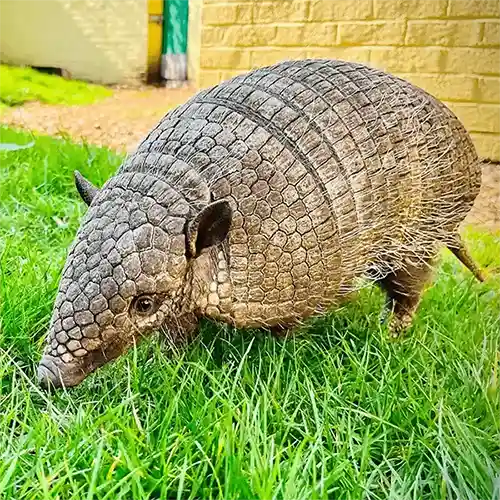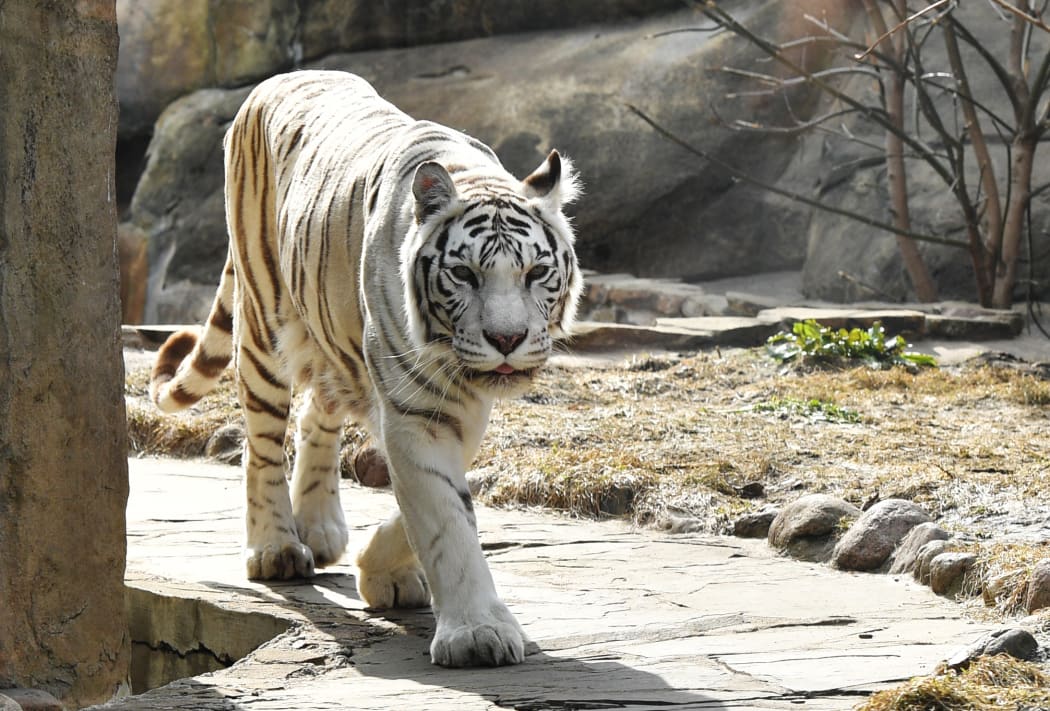How To Become A Zoo Keeper?
"The achievement of a nation and its moral development can be evaluated by the way its animals are dealt with." - Mahatma Gandhi
Do you enjoy animals and dream of working in a zoo? Zoo keepers are type in securing wildlife and taking care of animals. At locations like the Zoological Society of London (ZSL), over 20,000 animals get the care they require from professionals.
To become a zoo keeper, you need hard work, education, and a love for animals. This task is interesting, letting you deal with many species and assist with crucial preservation work. If you're into wildlife or animal welfare, zookeeping might be perfect for you.
Beginning your zoo keeper profession means discovering what's needed. This guide will cover education, zookeeper experience, and more. It's all you require to understand to start a satisfying zookeeping career.

Understanding the Role of a Zookeeper
Exploring what a zookeeper does reveals a function filled with difficulties and rewards. They focus on animal welfare and preservation. Zookeepers work hard to keep animals healthy and happy in their care.
Daily Responsibilities and Tasks
A zookeeper's day is filled with important jobs:
- Preparing meals that fulfill each animal's nutritional requirements
- Cleaning enclosures to keep them tidy and safe
- Watching over animal health and behaviour
- Offering medicines and treatments as needed
- Producing activities to keep animals mentally sharp
Workplace and Conditions
Zookeepers work outside in all kinds of weather. They handle both indoor and zookeeper outdoor areas. The task needs being healthy and able to manage the demands of taking care of animals.
"Being a zookeeper is more than a job - it's a passionate commitment to animal care and conservation."
Types of Animals and Specialisations
Zookeepers can specialise in lots of animal groups:
- Primates
- Big cats
- Marine mammals
- Reptiles
- Birds
Your role may include working with 2-5 various animal species. This requires a great deal of knowledge and the capability to adapt.
Important Skills and Personal Qualities for Zoo Keeping
To be a top zookeeper, you require more than just a love for animals. Your job will be difficult and require you to handle animals and people well. You'll likewise require to comprehend animal behaviour.
What zoos search for in people includes:
- Exceptional patience and emotional durability
- Strong physical conditioning and endurance
- Eager observation abilities
- Capability to stay calm under pressure
- High level of compassion towards animals
Getting hands-on experience is crucial to mastering this function. You'll require to reveal:
- Advanced understanding of animal care techniques
- Efficiency in animal handling and safety procedures
- Efficient communication with both animals and human visitors
"A great zookeeper links science, compassion, and conservation in every interaction with animals."
You should understand about animal nutrition, behaviour, and basic veterinarian care. Most zookeepers learn through training, volunteering, and continuous learning.
Zookeeper work is not just a job. It's a huge dedication to teaching about wildlife and zookeeper helping preservation. Your enthusiasm and hard work will make you stick out in this satisfying profession.
How to Become a Zoo Keeper
Beginning a profession as a zookeeper requires mindful preparation and education. You must initially understand the instructional needs and training paths. These will turn your love for animals into a job.
Educational Requirements
To be an excellent zookeeper, you require a strong academic base. A lot of jobs try to find specific credentials:
- At least 5 GCSEs at grade 4 or above, including English, maths, and science
- A levels or higher education certifications
- A college degree in biology or animal science
- Level 3 Diploma in Animal Management
Needed Certifications
Getting special certifications can actually help you in your zookeeper career. Crucial ones consist of:
- Diploma in Management of Zoo and Aquarium Animals (DMZAA)
- Zookeeping Level 3 Diploma (RQF)
- Animal dealing with certificates
- Emergency treatment certifications
Training Programs and Apprenticeships
Getting hands-on experience is type in zookeeper training. Many places offer excellent possibilities:
- Unpaid apprenticeships at wildlife parks
- Internship programs at well-known zoos
- Practical training at places like Colchester Zoo and Dartmoor Zoo
- Offering to acquire real-world abilities
Pro idea: Create an in-depth portfolio to reveal your animal care abilities. It will help you in task applications.
Structure Relevant Experience in Animal Care
Acquiring hands-on experience is key for those wanting to be zookeepers. The job is very competitive. So, zookeeper it's essential to begin developing a strong base in animal care.
Your journey starts with finding methods to work directly with animals. This is a strategic action.
"Experience is the very best teacher in animal care" - Wildlife Conservation Experts
Here are effective ways to acquire experience dealing with animals:
- Volunteer at regional animal shelters to develop basic animal managing skills
- Seek internships at wildlife rehabilitation centres
- Check out part-time positions at veterinary centers
- Contact your local zoo for possible volunteer chances
Offering is a fantastic method to discover animal behaviour and care. Many zoos and animal shelters are searching for people who want to discover. These locations provide great opportunities to get hands-on experience and show your devotion to animal welfare.
Here are some ideas to maximize your experience:
- Keep a record of your skills and interactions
- Get in touch with experts in animal care
- Ask for references and recommendation letters
- Stay consistent and reveal your real enthusiasm
Remember, useful experience makes you stand out in the zookeeping world. Every time you work with animals, you learn more. This increases your possibilities of getting a job in animal care.
Career Pathways and Professional Development
Beginning a profession as a zookeeper is interesting. It provides many opportunities to grow and specialise. Your journey begins with comprehending the various paths in this field.
Entry-Level Positions
Entry-level tasks in zookeeping are an excellent start. They offer you hands-on experience. Zoos try to find candidates with:
- Level 2 Diploma in Animal Care (minimum credentials)
- GCSEs in English and a scientific subject
- Volunteer experience at animal shelters or farms
Career Progression Opportunities
As you gain experience, your can grow. You can go up to:
- Junior Keeper
- Senior Keeper
- Team Leader
- Professional Roles
"Continuous knowing and useful experience are key to advancing in your zookeeping profession."
Specialised Roles
You can also pick unique areas like:
- Conservation reproducing programmes
- Animal training
- Wildlife research
- Educational outreach
About 25% of zookeepers get advanced degrees in zoology or animal conservation. Getting Level 4 qualifications can boost your chances for senior roles and research.
Working Hours and Physical Demands
Ending up being a zookeeper means you'll work more than just regular hours. You'll face hard physical difficulties and require to be flexible, including weekends and holidays. Zoos are open every day, so you'll typically work when others unwind.
"Zoo keeping is not a normal 9-to-5 job-- it's a way of life of devoted animal care and commitment."
This job is physically demanding. You'll work outside in any weather condition, lifting heavy items over 50 pounds. Your jobs may include:
- Early morning feeding schedules
- Cleaning up animal enclosures
- Preparing specialised diet plans
- Performing medical examination
- Maintaining complicated environments
Shifts can start as early as 5 AM and go late into the night. You'll be on your feet most of the time, moving between animal zones. Weekends and holidays belong to the task, needing lots of endurance and dedication.
Regardless of the difficulties, this task has fantastic benefits. You'll grow strong, both physically and emotionally. You'll also make fantastic connections with extraordinary animals.
Health and Safety Considerations
Being a zookeeper features its own set of challenges. It's crucial to understand how to keep both animals and staff safe. This implies following stringent health and wellness guidelines.
Zookeepers face a special environment where safety is essential. Research studies show that health and wellness are now as crucial as the zoo's main work.
Risk Management Strategies
There are several ways to manage threats in zoos:
- Daily checks of animal enclosures for dangers
- Counting animals at the start and end of shifts
- Viewing how visitors act near animals
- Being ready for emergencies
Animal Handling Safety Protocols
Understanding which animals are most harmful is important. Big animals like rhinos can be really risky. There have actually been cases where zookeepers got seriously harmed.
Security isn't just about wearing gear - it's about understanding animal behaviour and staying alert.
Individual Protective Equipment
Zookeepers require to wear the right equipment, including:
- Special gloves for dealing with animals
- Strong shoes for grip and safety
- Clothing that secures against germs
Getting immunized against illness like hepatitis B and rabies is likewise crucial. It helps keep zookeepers healthy in their tough job.
Salary Expectations and Job Market
Thinking of a career in zoo keeping? It's important to learn about salaries and the job market. The field is growing, with more opportunities in the UK.
Let's take a look at what zoo keepers can make at different stages:
- Entry-level zookeepers begin at about ₤ 14,000 a year
- Qualified ones make between ₤ 16,000 and ₤ 22,000
- Senior zookeepers can make up to ₤ 30,000 or more
The job outlook for zoo keepers is great. The sector is expected to grow by 5% in the UK by 2029. This indicates around 3,910 new jobs will be offered.
"The Association of Zoos and Aquariums supports professional development for zoo keepers," a report says.
Salaries vary based upon several things:
- Experience level
- Expertise
- Where you work
- The zoo's size and type
While the pay may not be high, the delight of dealing with animals is priceless. The typical salary is around ₤ 17,000. However, total revenues can be in between ₤ 13,000 and ₤ 27,000 a year.

Conclusion
Starting a career in animal care is an interesting journey. It needs commitment, enthusiasm, and a love for learning. With over 350 zoos and wildlife places in the UK, there are lots of job opportunities. You'll get to work with remarkable animals and assist protect wildlife.
To be a zoo keeper, you need more than just love for animals. You need to have a good understanding of biology, be able to interact well, and constantly wish to discover more. You'll gain hands-on experience, learn about animal welfare, and develop a deep regard for nature. About 3,000 individuals in the UK have actually discovered fulfilling careers in this field.

Your success in zoo keeping comes from mixing science with a love for animals. Whether you're interested in mammals, birds, or marine life, this job lets you aid with conservation. Every day will bring brand-new challenges and learning opportunities that will enhance your skills and knowledge.
If you like animals and want to assist safeguard wildlife, zoo keeping might be for you. Handle the challenge, stay curious, and turn your enthusiasm for animals into a gratifying career.

